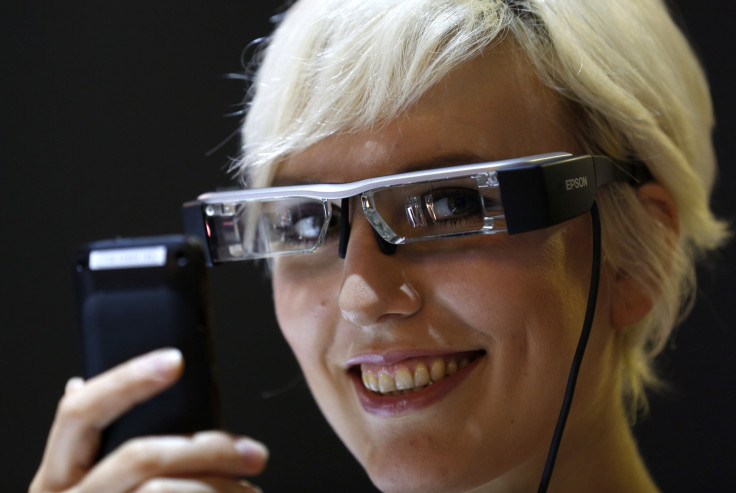Facebook Patents AR Glasses: 4 Ways The Device May Change Communication

Many tech pundits have predicted that smart glasses are the future of mobile communication. Michael Abrash, Oculus’ principal researcher, stated at last year’s Facebook F8 conference, "20 or 30 years from now, I predict that instead of carrying stylish smartphones everywhere, we'll wear stylish glasses. Those glasses will offer VR, AR and everything in between, and we'll use them all day.”
In August, Alex Kipman, who helped create HoloLens technology, said, “The potential of these devices [AR glasses] is that they could one day replace your phones, TVs, and all these screens. Once your apps, videos, information, and even social life are projected into your line of sight, you won't need any other screen-based gadgetry … [it's] the natural conclusion of mixed reality."
If these experts are right, smart glasses are on the verge of taking off and might even make smartphones, which have become an important part of our daily functioning, obsolete. The new addition to the growing list of companies working on smart glasses is Facebook.
Facebook CEO showcased a slide showing a pair of glasses titled the “future of AR/VR” and now it seems the company is finally developing the technology for the device, according to a new patent.
The patent published Thursday is titled “waveguide display with two-dimensional scanner” and has been published under the names of Wanli Chi, Pasi Saarikko and Hee Yoon Lee, three members of the research division of the Facebook-owned virtual reality company, Oculus.
The patent states that the display “may augment views of a physical, real-world environment with computer-generated elements" and also, "may be included in an eye-wear comprising a frame and a display assembly that presents media to a user's eyes."
Simply, it is an augmented reality pair of glasses similar to the ones Apple is expected to launch soon and the ones Google experimented with some years back with its Google Glass project. The difference with Facebook’s patent is that it is using a waveguide display instead of a regular display to overlay AR elements over a user’s surroundings in a user’s field of vision. This technology is closer to what Microsoft is doing with its HoloLens.
The smart glasses technology is expected to start replacing smartphones as early as 2022, although, given the current rate of the advancement in the technology, that seems improbable.
But, if the experts are to be believed, slowly and steadily smartphones will become obsolete. But, as smart glasses will create a new paradigm by replacing smartphones, they will also change the way we use communication technology.
Here are some ways such technology could change the way we communicate:
No Screen: In the future, we might not have to rely on displays like the ones on smartphones and PCs. Instead, anything a user needs might be projected right onto his/her glasses. This would mean that most tasks performed using such displays might be easily performed using a pair of smart glasses that put the required information, visuals, video etc., right in front of the user’s eyes.
This lack of external screens could mean less stress on a user's eyes if the smart glasses aren't more stress-providing.
More reliance on voice commands: According to most available patents of companies working on the technology, these devices will have a major reliance on voice commands. This is important since unlike smartphones, they don’t have touch-based interfaces, and the motion of eyes alone might not be able to deliver complex commands.
Eye-sensitive projection: A large part of getting the smart glasses correct is that the projection whether its AR or VR doesn’t hurt a user’s eyes and can be used for a long stretch at a go, like regular spectacles. Whether tech companies will be able to get this part correct is not yet known, but it is essential if the technology indeed replaces smartphones.
Also, one thing is uncertain. What about those of us who do not wear regular glasses all day and might not be attuned to them — does it mean that we are looking at a future, where everyone is roaming around wearing glasses?
Noise cancellation and light tracking: For smart glasses based gaming to replace mobile gaming, noise cancellation and light tracking are essential. Light tracking will track beams of light in the user’s field of vision, while noise cancellation will provide the necessary isolation for gaming on a pair of glasses. Upcoming products such as Apple's smart glasses are expected to have these features.
That being said, if we indeed are able to create smart glasses, the next logical step would be smart contacts lenses, wouldn’t it?
© Copyright IBTimes 2025. All rights reserved.



















